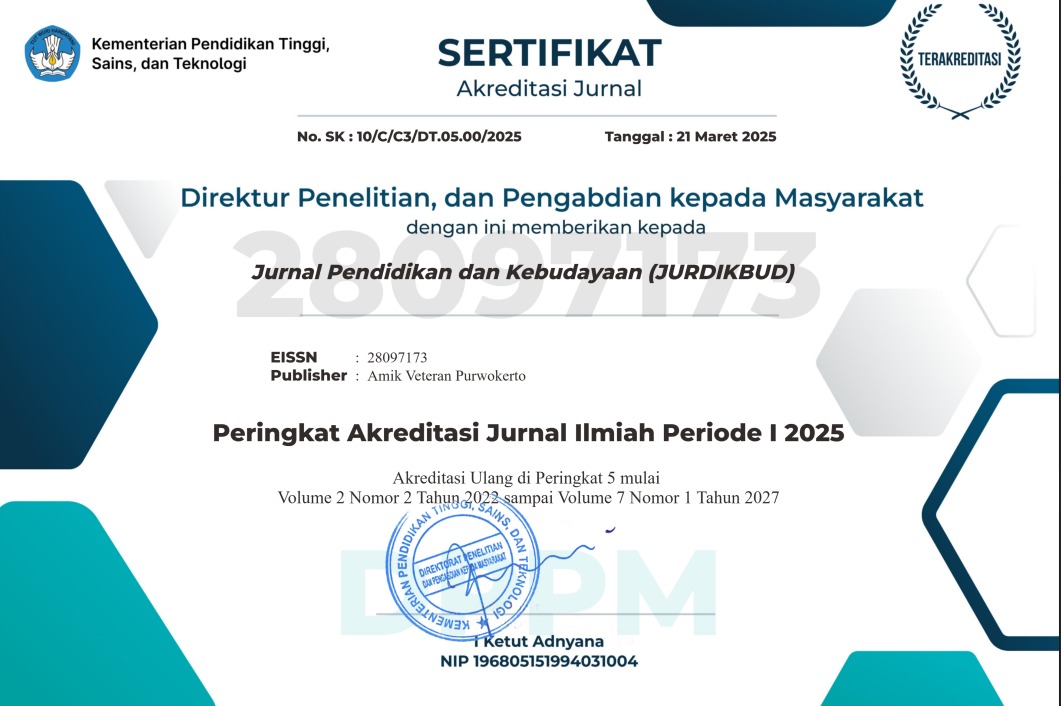The Urgency of Renewing the Theory of Punishment in the Formation of National Criminal Law Policy
DOI:
https://doi.org/10.55606/jurdikbud.v5i1.6389Keywords:
Sentencing Theory, New Criminal Code, Criminal Law Policy, Legal ReformAbstract
The formulation of the National Criminal Code through Law Number 1 of 2023 highlights the importance of reforming sentencing theory to anticipate legal and social developments in Indonesia. This study adopts a normative qualitative approach, taking into account the evolution of sentencing paradigms. The findings reveal that the sentencing theory in the new Criminal Code has shifted from a retributive model to an integrative model. It combines restorative justice, absolute, and relative theories. Sentencing today is not solely aimed at punishment, but also at restoring social relations and protecting human rights. The introduction of more diverse types of punishment, the recognition of corporations as legal subjects, and the establishment of sentencing standards as judicial guidelines reflect this reform. In conclusion, a more humanistic and responsive national criminal law policy depends on the development of sentencing theory.
References
Amalia, M., Reumi, F., & Kristanto, K. (2025). Kitab Undang Undang Hukum Pidana Tahun 2023. PT. Sonpedia Publishing Indonesia.
Amanda, A. (2024). Reconstruction of criminal case settlement regulations based on restorative justice to realize legal certainty (Study: Attorney as master of process/dominus litis in criminal justice system) [Doctoral dissertation, Sultan Agung Islamic University Semarang].
Andito, J. Y., Sahari, A., & Erwinsyahbana, T. (2022). Legal protection of victims of narcotics abuse through the double track system. Legality: Journal of Law, 14(1), 1–10.
Armand, F. (2003). Social marketing models for product-based reproductive health programs: A comparative analysis. Occasional Paper Series. Washington, DC. Retrieved from http://www.cmsproject.com
Chain, P. (1997). Same or different?: A comparison of the beliefs Australian and Chinese university students hold about learning’s proceedings of AARE conference. Swinburne University. http://www.swin.edu.au/aare/97pap/CHAN97058.html
Faisal, F., Rahayu, D. P., Darmawan, A., Irfani, M., & Muttaqin, A. (2023). Interpretation of criminal policy on santet acts in the criminal code bill. Journal of Indonesian Legal Development, 5(1), 220–232.
Fasrial, R. S. (2014). Implementation of the theory of the purpose of punishment in the decision of corruption judges in the District Court (First Level) [Doctoral dissertation, Indonesia Islam University].
Hakim, L. (2020). Application and implementation of the "purpose of punishment" in the draft criminal code (RKUHP) and the draft criminal procedure code (RKUHP). Deepublish.
Hamzani, A. I. (2022). Urgency of accelerating national law development. NEM Publisher.
Jerman, H. (2017). Pemulihan aset hasil kejahatan sebagai bentuk perlindungan hukum terhadap korban kejahatan. DIH: Jurnal Ilmu Hukum, 149–161.
Kamal, K. (2023). The process of paradigma change as an effort to deradicalize terrorism offenders [Doctoral dissertation, Hasanuddin University].
Kotler, P., & Lee, N. R. (2009). Up and out of poverty: The social marketing solution. Pearson Education, Inc.
LAKSANA, A. D. (2021). Penerapan sanksi kebiri kimia dalam Undang-Undang No. 17 Tahun 2016 dalam konsep double track system [Doctoral dissertation, Universitas 17 Agustus 1945 Surabaya].
Lindawati. (2015). Analisis faktor yang mempengaruhi perilaku ekonomi dan kesejahteraan rumah tangga petani usahatani terpadu padi-sapi di Provinsi Jawa Barat [Master's thesis, Institut Pertanian Bogor]. http://repository.ipb.ac.id/handle/123456789/85350
LPPSP. (2016). Statistik Indonesia 2016. Badan Pusat Statistik. https://www.lppsp.go.id/index.php/publikasi/326
Nasution, M. I., Ali, M., & Lubis, F. (2024). Reforming the Indonesian punishment system: A literature review of the new criminal code. Judge: Journal of Law, 5(1), 16–23.
Norsyaheera, A. W., Lailatul, F. A. H., Shahid, S. A. M., & Maon, S. N. (2016). The relationship between marketing mix and customer loyalty in hijab industry: The mediating effect of customer satisfaction. In Procedia Economics and Finance (Vol. 37, pp. 366–371). Elsevier B.V. https://doi.org/10.1016/S2212-5671(16)30138-1
Padang, M. A., Siregar, B. J., & Rosmalinda, R. (2024). The partisanship of punishment in Law Number 1 Year 2023. Locus: Journal of Legal Science Concepts, 4(2), 64–71.
Putra, R. F. (2024). Legal philosophy of narcotics abuse in the perspective of Islamic criminal law and positive law. ‘Aainul Haq: Journal of Islamic Family Law, 4(1).
Risdwiyanto, A. (2016, Februari 22). Tas kresek berbayar, ubah perilaku belanja? Kedaulatan Rakyat, hlm. 12.
Rivanie, S. S., Muchtar, S., Muin, A. M., Prasetya, A. D., & Rizky, A. (2022). The development of theories of the purpose of punishment. Halu Oleo Law Review, 6(2), 176–188.
Rohmat, H. N., & S.H., M. K. Criminal justice system.
Soponyono, E. (2012). Policy formulation of victim-oriented punishment system. Legal Issues, 41(1), 29–41.
StatSoft, Inc. (1997). Electronic statistic textbook. StatSoft Online. http://www.statsoft.com/textbook/stathome.html
Wulandari, S. (2023, December). Social reintegration in the correctional system as a vision of punishment in national law. In National Seminar on Technology and Multidisciplinary Sciences (SEMNASTEKMU), 3(2), 26–36.
Downloads
Published
How to Cite
Issue
Section
License
Copyright (c) 2025 Jurnal Pendidikan dan Kebudayaan (JURDIKBUD)

This work is licensed under a Creative Commons Attribution-ShareAlike 4.0 International License.









